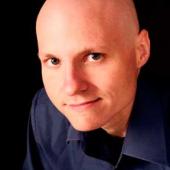What Are You working On?
Editorial
The question is inevitable and comes when I'm talking to performers, techies, playwrights (and everyone in between): "What are you working on?"
This is a fraught question that sends me tumbling down a thought-hole, grasping for purchase. It's a question I often ask. But my answer? Everything and nothing.
I've run Twin Cities Theater Connection podcast for three and a half years. In that time I've produced approximately 250 episodes, a number that looks intimidating when I'm staring at it on the page. For those readers unfamiliar with the podcast, ranging from interviews focused on process with members of the Twin Cities theatre scene (if you're a regular reader of Minnesota Playlist and listen to TCTC podcasts, you will connect many voices to faces and content) to on-the-street interviews with theatre-going audience members. Occasionally I do roundtables and talkbacks and some more creative material, and when Minnesota Fringe rolls around? Look out.
I went to Hamline University for theatre and English and was involved with the student newspaper, working mainly the Entertainment beat. I also had the fantastic pleasure to intern with Bill Carlson at WCCO-TV, so producing a podcast covering theatre seemed to be part of a natural trajectory. And aside from the occasional guest host, I produce, host, edit, and market my show. I do it all!
As a result, I'm always working on the podcast. My education prepared me to write and act, but I only get the chance to do those when the opportunity comes along. The production schedule keeps me constantly working on new episodes. The few times I've acted or written in the last few years have usually been at someone's personal request. The last time was for the podcast itself, this year's April fools day episode, which I eventually hope to turn into a larger project. But for the most part, my creative energy is devoted to podcasting.
As much as that load is to deal with, the best part of producing is the people. Having a face-to-face conversation about theatre with people from across the theatre spectrum has always been my top priority. And the members of the theatre scene have availed themselves spectacularly. The pleasure of meeting artists and seeing them develop over the last few years has been an unexpected treat. But these are busy people--and scheduling a meeting to promote their work can be difficult.
When I contact people to determine if they're interested in coming on the podcast, I'm met with three responses: they are eager to promote themselves or their work, they are too busy, or I receive no response at all. The latter two are easy dealt with--I find another subject and move on. Overall, people are game to meet and talk about their work--it's free advertising. When someone agrees and commits to meet, we then have to figure out a time that works for everyone.
For a recording we need an hour: time for preparation and setup, the recording itself, and the wind-down. But finding that hour when the interviewees have day jobs, a rehearsal schedule, and personal lives leads to a lot of back and forth. There's also temptation to record remotely via Skype--as I've done with Seth Lepore when he appeared on the podcast to promote SuperHappyMelancholyexpialidocious--but that is something I avoid because of the intangibles of face-to-face conversation.
Finding a time for individuals is hard and scheduling a roundtable podcast with multiple guests moreso. I did a six-part-series breaking down the book Outrageous Fortune: The Life and Times of the New American Play. Those episodes were recorded over three weekends and I had to contact multiple people to make sure I would have guests each week. Three weekends of recording that everyone could commit to proved next-to impossible. Guests were able to cover one or two weekends, but not three. This worked out well, but it required stage manager muscles.
On the scheduling flipside, there are those who don't respond to an inquiry. As mentioned, it's rare that people don't want to be involved in the podcast. However, I recently asked a few people if they would be interested in being involved in a roundtable discussing the Guthrie's current season and the community's reaction, and while I got a couple responses, others were silent. I assume they didn't want to wade into those political waters.
Often when the public nature of the podcast becomes apparent and a guest realizes it's a free form discussion on the artistic process connected to a specific show or topic, they may feel apprehensive about expressing themselves to an audience. Sometimes a guest will tell me after we're finished recording that they were nervous; they hate the sound of their voice or they thought they would sound unintelligent.
These two issues are connected--from my own anecdotal research, people hate the sound of their own voice almost universally, and it stems from that real fear that they will mess up or sound stupid. Confession: I feel like the most uninformed person on the podcast. I'll walk away after an interview wondering why I phrased a sentence one way, ask myself why did I trailed off there, or why didn't I follow up on a certain point. There's a considerable amount of second guessing going on, but I live with it and resolve to be better. When I think about my own performance as a host I try to remember that my guests are working on their shows, pouring their considerable talents and passions into making a show that will reach audiences. Their shows are their lives, and when I'm interviewing, my job is to explore and get to know them and their work better.
You are the best person to promote your work. Your voice matters. You know your art intimately, so don't be afraid to let people know! I want you to be electric, on fire, sizzling, because I want to be excited about what you've created. And when we're in sync and engaged, it's good for getting butts into seats. Own your work, enthusiastically share it and audiences will come to you.




